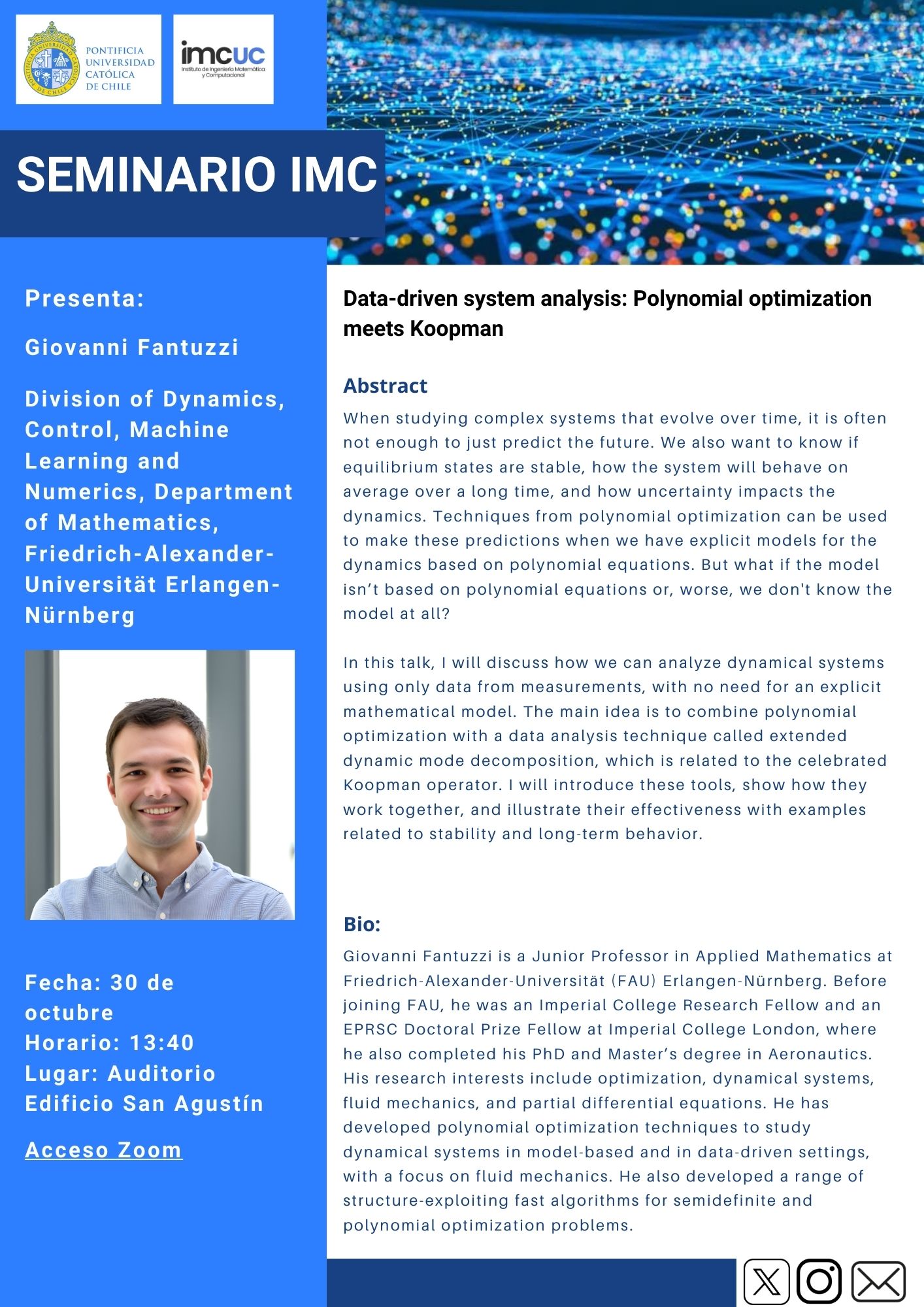El Instituto de Ingeniería Matemática y Computacional (IMC) invita al seminario que se dictará la próxima semana.
Giovanni Fantuzzi, Division of Dynamics, Control, Machine Learning and Numerics, Department of Mathematics, Friedrich-Alexander-Universität Erlangen-Nürnberg.
Miércoles 30 de octubre de 2024, 13:40 hrs. (Presencial en auditorio Edificio San Agustín; link Zoom disponible escribiendo a Esta dirección de correo electrónico está siendo protegida contra los robots de spam. Necesita tener JavaScript habilitado para poder verlo.)
ABSTRACT
When studying complex systems that evolve over time, it is often not enough to just predict the future. We also want to know if equilibrium states are stable, how the system will behave on average over a long time, and how uncertainty impacts the dynamics. Techniques from polynomial optimization can be used to make these predictions when we have explicit models for the dynamics based on polynomial equations. But what if the model isn’t based on polynomial equations or, worse, we don't know the model at all?
In this talk, I will discuss how we can analyze dynamical systems using only data from measurements, with no need for an explicit mathematical model. The main idea is to combine polynomial optimization with a data analysis technique called extended dynamic mode decomposition, which is related to the celebrated Koopman operator. I will introduce these tools, show how they work together, and illustrate their effectiveness with examples related to stability and long-term behavior.

